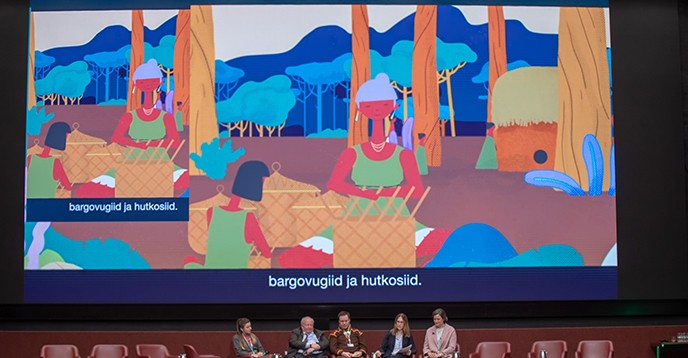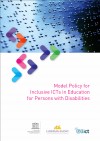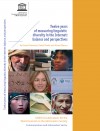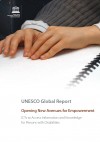Access to Information
Globalization, while shaping a new era of interaction between nations, economies and people, may as well be disruptive, and engender side effects such as marginalization. It is up to international institutions and national authorities to find ways to counter such possible effects, particularly in the areas of access to information and knowledge, the spread of new information technologies and communication and development of multilingualism in cyberspace.
Several concrete measures to promote access to knowledge in cyberspace are proposed by UNESCO within the framework of its Recommendation to guide both the debate and action by the involved international instances in this domain. Thus, Member States should establish and support national policies to promote multilingualism and universal access. In addition, Internet access, considered as a public information service, should be encouraged by the adoption of appropriate policies. Member States should therefore recognize and enact the right to online access to public records and government administration records, including all the information citizens need in a modern democratic society, so to ensure the universal access to information in the public domain and its free flow, without geographical, economic or social discrimination.
Similarly, UNESCO’s Member States and international organizations should facilitate the acquisition of basic computer skills for all and further popularize the implementation and use of information technology and communication for sustainable development and peace.
15 per cent of the world population lives with some form of disabilities. Nonetheless, information and communication technologies (ICT) have the potential for making significant improvements in the lives of these persons, allowing them to enhance their social, political and economic integration in communities and society by enlarging the scope of activities available to them. UNESCO contributes to the implementation of the United Nations Convention on the Rights of Persons with Disabilities, particularly on article 9 Accessibility, article 21 Freedom of expression and access to information, article 24 education and article 32 International cooperation.
Cultural diversity and multilingualism on the Internet have a key role to play in fostering pluralistic, equitable, open and inclusive knowledge societies. UNESCO encourages its Member States to develop comprehensive language-related policies, to allocate resources and use appropriate tools in order to promote and facilitate linguistic diversity and multilingualism, including the Internet and media within the framework of UNESCO Recommendation concerning the Promotion and Use of Multilingualism and Universal Access to Cyberspace.









